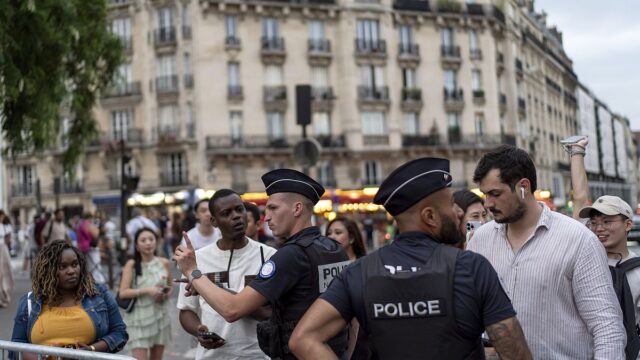The use of restrictions on the occasion of the Olympic Games appears to be unprecedented in scope, some legal experts say. The power in question is known as an “individual measure of administrative control and surveillance” under French anti-terrorism law.
The French authorities are making a unprecedented use of the discretionary powers conferred on them by an anti-terrorism law to keep hundreds of people away from the Olympic Games who they consider potential security threats.
Many of the affected by the measures are minorities coming, mostly, from former French colonies. These people are prohibited from leaving their neighborhoods and are forced to report to the Police daily.
Among those who have their movements restricted, with orders that do not require prior approval from judges, is a citizen who had mental health problems in the past, and who is now receiving treatment.
Also lack freedom of movement a business student who believes he has been targeted, in part, because he is Muslim and his father was born in Morocco, and a driver for a halal food delivery company who is at risk of losing his job because He has been prohibited from traveling too far from his home, his lawyers point out.
Among those affected is also Amine, a finance student who now has prohibited from leaving the suburb in which he residessouth of Paris, except to show up at 6:30 p.m. every day at a local police station.
This 21-year-old young man, born in France, He has no criminal record nor has he been accused of any crime, according to him and his lawyer.
Amine believes that French intelligence services have confused him with another person who posted images of beheadings and threats against people from the LGTBIQ+ group in a video sharing application.
The French Minister of the Interior, Gérald Darmanin, states that the restrictions are intended to prevent people “very dangerous“attack the Olympic Games.
Darmanin assures that this year the measures have been applied to more than 500 people as part of the France’s security preparations for the 2024 Games and the Olympic torch relay, which took place before the event’s opening ceremony.
A ‘terribly dangerous’ tool
The use of restrictions on the occasion of the Olympic Games seems to have an unprecedented reach, say some jurists. The power in question is known as an “individual measure of administrative control and surveillance” under French anti-terrorism law.
More than 500 people have had their movements restricted this year and, according to Darmanin, there are now fewer than 200 left during the Games. That contrasts with 205 people placed under restrictions in the first 26 months of the 2017 law coming into force, according to a 2020 French Senate report.
“Actually, the situation is directly related to the Olympic Games“, indicates the lawyer Margot Pugliese. The lawyer has described the power applied as “a horror” and as “the total failure of the rule of law”, because they can only be challenged in court after they have been applied.
“It’s a tool terribly dangerous as long as there is a repressive government,” says Pugliese.
Lawyers say some of their clients have no criminal record and only have tenuous ties to suspected extremists. Of those lawyers AP Agency journalists have spoken to, approximately half of their clients are immigrants, most with family roots in North Africa.
Darmanin claims that minorities are not being singled out, and that people suspected of extremism Left and right are also under surveillance.
Given the fear of terrorist attacksthe French authorities have significantly reinforced security on the occasion of the Olympic Games.
The preventive anti-terrorism effort also includes the liberal use of police powers for restrict movements of people whom the Ministry of the Interior considers potential threats.
Measurements can only be subsequently challenged in court, something that some of those affected are already doing; several of them, successfully.
The anti-terrorism law empowers the French Interior Minister to restrict the movements of any person where they exist “well-founded reasons” to believe that he constitutes a serious security threat and has links or sympathies with terrorism.







